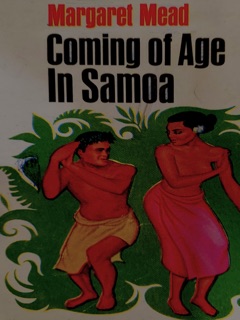"Coming of Age in Samoa: A Psychological Study of Primitive Youth for Western Civilization" by Margaret Mead is a pioneering work in cultural anthropology that examines the adolescence and cultural practices of Samoan youth. Originally published in 1928, Mead's study challenges Western assumptions about the universality of adolescent experiences and sheds light on the influence of cultural factors on human behavior.
In this groundbreaking work, Mead explores Samoan society's impact on the emotional and psychological development of its youth, focusing on the transition from adolescence to adulthood. Mead's findings suggest that cultural factors, such as societal norms and expectations, significantly shape individuals' behaviors and attitudes during this crucial life stage.
The book sparked significant debate and discussion, as Mead's conclusions contradicted prevailing notions of the time regarding the fixed and biologically determined nature of human development. Her work influenced the field of anthropology and contributed to a broader understanding of cultural relativism.
"Coming of Age in Samoa" remains a seminal work that invites readers to reconsider their perspectives on cultural diversity and the ways in which societal expectations shape human experiences, particularly during the formative years of adolescence.






















